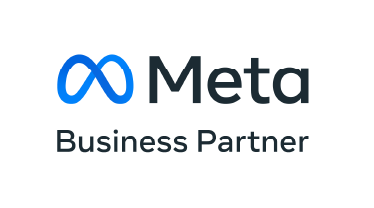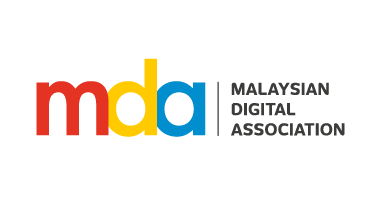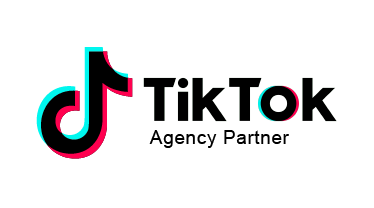How AI and Machine Learning Will Shape Your Business’ Marketing Strategy
Artificial intelligence (AI) and machine learning (ML) are transforming industries across the globe, and marketing is no exception. As these technologies continue to evolve, businesses that embrace AI and ML can benefit from enhanced customer insights, improved decision-making and greater efficiency. From predictive analytics to personalised recommendations, AI applications for marketing are helping companies deliver better experiences and achieve higher marketing ROI. In this article, we’ll explore the impact of artificial intelligence on business, focusing on how AI and ML can shape your marketing strategy and give you a competitive edge.
Table of Contents
Understanding the Role of AI and Machine Learning in Marketing
AI and ML have introduced a new level of precision and personalisation in marketing. By analysing vast amounts of data, these technologies can uncover patterns and predict consumer behaviour, allowing businesses to tailor their marketing efforts accordingly. AI-driven tools can process data faster than any human team, enabling marketers to make data-driven decisions that boost customer satisfaction and drive conversions.
In the context of marketing, machine learning applications include tasks like audience segmentation, sentiment analysis and customer journey mapping. These applications allow companies to personalise their messages and create targeted campaigns that resonate with specific audience segments.
AI Applications for Marketing
Here are some key AI applications for marketing that are helping businesses enhance their strategies:
1. Predictive Analytics
Predictive analytics uses AI to analyse historical data and make forecasts about future trends. In marketing, this means predicting customer behaviour, purchase patterns and the likelihood of churn. By understanding which customers are more likely to engage or convert, marketers can allocate resources more effectively, boosting overall marketing ROI.
Predictive analytics can also identify products or services that may interest specific customer groups, enabling marketers to create highly relevant campaigns. For example, an e-commerce business might use predictive analytics to send personalised product recommendations to customers based on their previous purchases.
2. Personalised Marketing
Today’s consumers expect personalised experiences, and AI makes it easier to meet these expectations. Using data from various sources, AI can deliver personalised recommendations, tailored content and product suggestions in real time. This level of personalisation helps build customer loyalty and increases conversion rates, as customers are more likely to engage with content that feels relevant to them.
Personalised marketing can be applied across channels, including email, social media, and website interactions. For example, AI-driven recommendation engines on platforms like Netflix and Amazon provide users with tailored suggestions, increasing engagement and retention.
3. Chatbots and Customer Service Automation
AI-powered chatbots have revolutionised customer service by providing instant, 24/7 support to customers. By using natural language processing (NLP), chatbots can understand and respond to customer queries, guiding them through the purchasing process or helping them resolve issues. This not only enhances the customer experience but also reduces the workload for customer service teams, allowing them to focus on more complex inquiries.
Chatbots can also be used for marketing purposes, such as delivering personalised messages or offers based on customer behaviour. For instance, a chatbot on an e-commerce site could offer a discount code to a user who shows interest in a specific product, thereby encouraging them to make a purchase.
4. Content Creation and Curation
AI is increasingly being used to assist with content creation, from generating blog outlines to writing social media posts. AI-driven content creation tools can produce high-quality content based on predefined parameters, saving time for marketers and ensuring consistency. Additionally, AI can help with content curation by analysing user preferences and suggesting relevant articles or videos.
For instance, news websites often use AI to curate content for their readers based on browsing history and preferences, ensuring that users see articles most relevant to their interests. Content curation powered by AI not only boosts engagement but also enhances the overall user experience.
5. Enhanced Ad Targeting and Programmatic Advertising
AI and ML have transformed online advertising, making ad targeting more precise than ever before. Programmatic advertising uses AI algorithms to buy ad placements in real time based on audience data and bidding strategies. This process allows marketers to target specific demographics with relevant ads, increasing the likelihood of engagement and conversions.
With programmatic advertising, AI can automatically adjust bids and placements based on performance data, ensuring optimal ad spend and improved marketing ROI. By using AI-powered targeting, marketers can ensure their ads reach the right audience at the right time, enhancing campaign effectiveness.
Benefits of AI and Machine Learning in Marketing
The impact of artificial intelligence on business is extensive, and its benefits for marketing are clear. Here’s how AI and ML can elevate your marketing strategy:
Improved Decision-Making: AI provides insights into consumer behaviour, helping marketers make more informed decisions. With access to real-time data, marketers can quickly adjust campaigns based on performance metrics, optimising ad spend and messaging for better results.
Enhanced Customer Experience: AI-driven personalisation and automation make it possible to offer seamless customer experiences. From tailored recommendations to instant responses through chatbots, AI ensures that customers feel valued and understood, fostering loyalty and satisfaction.
Greater Efficiency and Cost Savings: By automating repetitive tasks like data analysis and ad placement, AI frees up time for marketers to focus on strategy and creativity. Additionally, the ability to target ads precisely can reduce wasted ad spend, resulting in significant cost savings.
Higher Conversion Rate: Personalised content, targeted ads and predictive recommendations all contribute to higher conversion rates. When customers feel that a brand understands their needs, they’re more likely to engage and make a purchase.
Preparing Your Business for AI-Driven Marketing
As AI and ML continue to evolve, businesses that stay ahead of the curve will have a competitive advantage. Here are a few steps to help your business prepare for AI-driven marketing:
- Invest in Data Collection and Analytics
AI thrives on data, so it’s essential to invest in data collection tools and analytics platforms. By gathering information on customer behaviour, preferences and interactions, you’ll have the data needed to power AI applications effectively. - Start with Simple AI Tools
If your business is new to AI, start with simple tools like chatbots or basic personalisation software. Many AI applications, such as automated email marketing tools or recommendation engines, are relatively easy to implement and offer immediate value. - Focus on Data Privacy and Ethics
With the rise of AI, data privacy and ethical considerations are increasingly important. Ensure your AI practices align with data protection regulations and demonstrate transparency in how customer data is used. Ethical AI practices not only protect customer trust but also improve brand reputation. - Train Your Team
AI and ML require specific skills, so it’s important to provide training for your marketing team. Investing in AI education ensures that your team can make the most of these technologies, adapting to the changing landscape and maximising results.
Leveraging AI and ML for a Future-Ready Marketing Strategy
AI and machine learning are no longer emerging technologies; they are essential tools for businesses looking to enhance their marketing strategies. From machine learning applications that predict customer behaviour to chatbots that provide instant support, AI has proven its ability to drive results and elevate the customer experience.
For businesses aiming to stay competitive, adopting AI-driven marketing is an important step towards success in an increasingly digital world. With the power to analyse vast amounts of data, create personalised experiences and automate processes, AI enables marketers to work smarter, not harder.
A digital agency like Primal specialises in helping businesses integrate AI into their marketing strategies. Whether you’re looking to implement predictive analytics, enhance personalisation or explore automated advertising, we’re here to guide you through the process. Let us help you harness the power of AI and machine learning to transform your marketing efforts and set your business up for a future of growth and innovation.










Join the discussion - 0 Comment